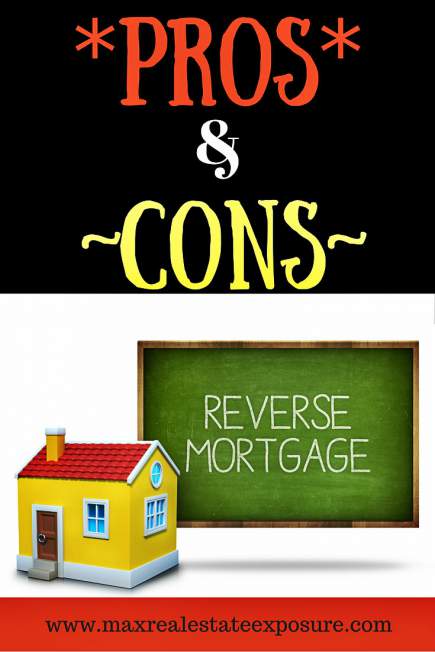Unlocking The Equity in Your Home
 One of the questions homeowners often ask is how do I get the equity out of my house? Lots of people are finding themselves house-rich but cash poor.
One of the questions homeowners often ask is how do I get the equity out of my house? Lots of people are finding themselves house-rich but cash poor.
It has become increasingly common for people reaching retirement age to have less money than they need – certainly not enough to retire comfortably for 30 years. But many of these individuals do have at least one potential source of income in their home.
You may have completely paid off your mortgage or owe so little that you have several different options for getting much-needed money out of your home. You just need to know how to access the equity in your home, which can be accomplished by downsizing or taking out a reverse mortgage or possibly a home equity loan.
The following information will help you understand how to use your equity and enjoy your retirement in a way that you would not be able to otherwise. There are many alternative ways to get equity out of your home than a traditional refinance or home equity loan.
Continue reading to see the best ways to get the equity out of your home!
Downsize to a Smaller Home
Selling your home and then moving into a smaller home is one of the best ways to take advantage of all the equity you have in your current home. Sometimes when you are getting close to retirement, this is the best move.
You can buy another home, or you can rent. Whichever you choose, you may be able to get a considerable amount of income using this method. Not only do you get money from selling your home, but you can also significantly reduce your expenses moving forward.
For example, if you are going from a $600,000 home to a $300,000 home, you will not only free up a substantial amount of equity in your home but are also likely to save a significant amount of housing expenses as well.
Things like taxes and utility bills are bound to be cheaper in a smaller home, all other things being equal. You might also opt for a home that is more energy-efficient. For example, more and more buyers today seek out homes they know will be less costly to operate because they have a solar panel system for saving money. Some homes with solar panel systems are actually paying almost nothing for electricity. This can save someone in retirement a significant amount of money.
Working as a Hopkinton real estate agent for almost thirty years, I have seen a significant amount of older couples leaving my hometown of Hopkinton, Massachusetts, due to the high cost of living. Their kids have grown, so they don’t have a need anymore for the exceptional school system.
They have gotten tired of paying the high taxes and are therefore looking for somewhere else to call home, where the drain on their retirement will not be so steep. Of course, I’ve had to remind some of these folks that the schools significantly impacted their home’s market value. So while they no longer need the schools, they were a big help in establishing the equity they have in their property.
Obviously, there are some drawbacks to downsizing. You may have wanted to live in your home for the rest of your life. It is a comfortable space, and you have spent years breaking it in and making it exactly how you want it. You may also not want to go through the hassle of selling and then finding another home, which is understandable.
Doing so takes planning and a fair amount of work. Selling a home can also be expensive. When you think about real estate commissions, attorney fees, the cost of moving, and anything you need to do to get your home on the market, it can be quite costly. Make sure you understand all the costs of selling your home before doing so.
Ultimately, however, downsizing is often more financially sound than a reverse mortgage or most any other option for accessing your home’s equity.
Make Money And Save Money
 You may not have looked in a while, but your home could be worth quite a bit. You may discover that your property could sell for substantially more than you paid for it – and you will free up a good portion of that money for your retirement.
You may not have looked in a while, but your home could be worth quite a bit. You may discover that your property could sell for substantially more than you paid for it – and you will free up a good portion of that money for your retirement.
For instance, if your home is now worth $500,000, you may be able to sell it and purchase a home for $250,000, or even less, if you are willing to go smaller or with a townhouse. That leaves you with $250,000 extra for retirement, or more, depending on the cost of your next home.
One of the few exceptional tax perks that many homeowners are not aware of is the real estate capital gains tax exclusion. Generally speaking, if you are married, up to $500,000 in profit is excluded from taxation when you sell your home. Those who are widowed within two years of the home sale can also take advantage as well. If you are single, you can still exclude $250,000 in profit from capital gains taxes.
While downsizing can be the most lucrative option, it may not be ideal, depending on your circumstances. Capital gains tax is usually avoidable as long as you meet current requirements, but you should verify that you do before leaping.
Speaking to a tax adviser is always prudent to understand your unique circumstances. If you are expecting you or your spouse will need nursing home care soon, your profit from your sale may be at risk as well. This is one of the many tax advantages of homeownership.
As mentioned previously, beyond the money you make from the sale, your cost of living may be reduced significantly if you move into a smaller home. Heating, cooling, electricity, gas, maintenance, and insurance – all will be cheaper the smaller the home. If you move to a different area, one with lower property taxes, you will save even more money.
A Home That Fits Your Current Lifestyle
Downsizing not only makes sense financially but it also often makes sense from a lifestyle perspective. Your current home may have been perfect for you and the kids. But now that it’s just you, a smaller home means less cleaning, furniture, yard work, etc. You don’t have to pay a premium to live in a good school district, either.
Many who are entering their retirement years will opt for a condo instead of a single-family home. Of course, there are advantages for purchasing a condo, including less maintenance and up-keep that you no longer have the time or energy for.
Just be sure you understand that owning a condo or townhouse is quite different from a single-family home. With a condo, you will be living with a different set of rules than you’re used to.
Reverse Mortgage
Option #2 to get the equity out of your property as a retiree is a reverse mortgage. A reverse mortgage lets you borrow money against the equity in your home. The older you are, the more money you can borrow in most cases.
You can typically take out the money in a lump sum or take payments or a line of credit. These loans are appealing because you do not have to make loan payments during your lifetime, as long as you continue to live in the home. You do have to be a minimum of sixty-two years old in order to qualify for a reverse mortgage.
Reverse mortgages have a negative reputation, one that is not wholly undeserved. Reverse mortgages were pushed on older homeowners for a time even if the loan was not in the borrower’s best interest. Some companies were nabbed for running misleading advertisements as well as confusing contracts.
Regulations have been passed to protect consumers, however, and reverse mortgages continue to have certain advantages that make them a valuable tool for the right retiree. You just need to be informed and work with a lender you can trust – and ideally, speak to a financial adviser before you make any permanent commitments.
Advantages Of Reverse Mortgages
 The money you get from the reverse mortgage is usually not subject to income tax or capital gains tax. The money from your loan will also not usually affect Medicare or Social Security benefits.
The money you get from the reverse mortgage is usually not subject to income tax or capital gains tax. The money from your loan will also not usually affect Medicare or Social Security benefits.
With no taxes and no impact on your coverage from Medicare – which most retirees depend on – it is easy to see why some homeowners choose reverse mortgages.
Using a reverse mortgage works great for those owners who want to get the equity out of their home but have decided they don’t want to move. It is a win-win situation.
Disadvantages Of Reverse Mortgages
A reverse mortgage is expensive. You can expect the lender to take a chunk of your money in fees, maybe up to 10% or more. The lender will also be the one to get your home after you pass away, so you cannot expect to pass it on to your heirs if you take a reverse mortgage. The reverse mortgage loan will need to be paid off in order for a family member to keep the home.
This can cause some folks to want to sell their home after getting a reverse mortgage. Ensure you have a thorough understanding of what you are signing up for when getting a reverse mortgage loan. Lots of homeowners going this route have found themselves in a place they did not understand completely.
Home Equity Loan
The third option for tapping the value of your home is a home equity loan. A home equity loan is probably one of the most commonly used mortgages for homeowners. Quite simply home equity loan allows a borrower to use the equity in their home as collateral. It is a type of lien against the house.
Many homeowners use these types of loans for any number of reasons, whether it is to make improvements to the home, pay for other bills, college education for children, or even buy a car.
A home equity loan should not be confused with a HELOC or home equity line of credit. There are specific differences between a home equity line of credit (HELOC) and a home equity loan.
A HELOC is a line of revolving credit that has an adjustable interest rate. A home equity loan is a one-time lump-sum loan that usually comes with a fixed interest rate. With a HELOC, the homeowner can determine when and how often to borrow against the property’s equity.
Like a traditional mortgage, the lender will set an initial limit to the credit line based on guidelines similar to a closed-end loan. This credit line is usually available for up to 30 years, typically with an adjustable interest rate. The minimum monthly payment can be as low as only the interest that is due. The major drawback of a HELOC is the fact it is almost always a variable interest rate. This means that your cost of borrowing could change substantially at a moment’s notice.
A HELOC, however, is great when you need money in a pinch for something like replacing a roof.
Choosing What Is Best For You
Every person’s situation is different, so it is so important to educate yourself on your options for getting equity out of your home. What works for your friend, neighbor, or family member might not be right for you. Consider your options carefully, and do what is best for your specific circumstances. How to get the equity out of your home is something you should think through carefully.
More Helpful Mortgage & Real Estate Related Articles
- Top frequently asked mortgage questions – see some of the most common questions a lender will get from consumers.
- Four methods to selling a house – get some great tips on how you can be successful at selling your home in a snap.
Use these additional resources to make smart decisions when it comes to your home!
About the Author: The above Real Estate information on how to get the equity out of your home was provided by Bill Gassett, a Nationally recognized leader in his field. Bill can be reached via email at billgassett@remaxexec.com or by phone at 508-625-0191. Bill has helped people move in and out of many Metrowest towns for the last 34+ Years.
Thinking of selling your home? I have a passion for Real Estate and love to share my marketing expertise!
I service Real Estate Sales in the following Metrowest MA towns: Ashland, Bellingham, Douglas, Framingham, Franklin, Grafton, Holliston, Hopkinton, Hopedale, Medway, Mendon, Milford, Millbury, Millville, Northborough, Northbridge, Shrewsbury, Southborough, Sutton, Wayland, Westborough, Whitinsville, Worcester, Upton, and Uxbridge MA.